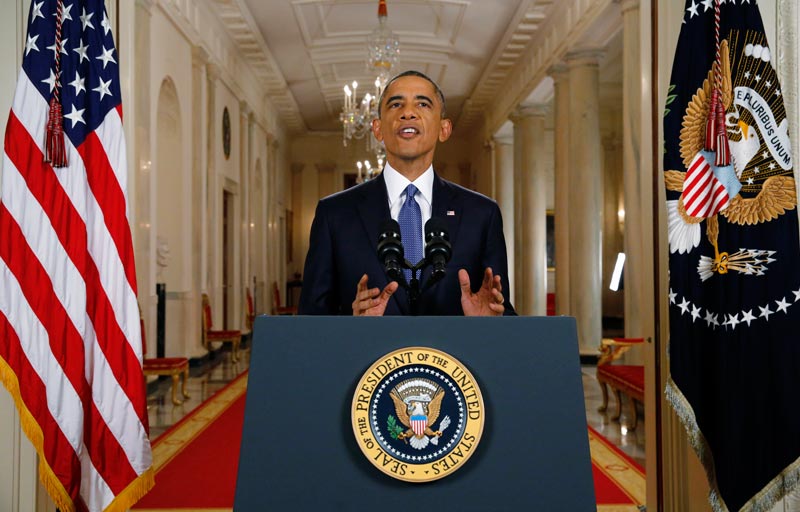
When President Obama announced his policy to permit up to four million undocumented immigrants to remain in the country without fear of deportation, conservatives howled. They should have cheered as the president offered rationales that would appear as conservative under Professor Jonathon Haidt’s moral foundations theory.
The president began with an appeal to political memory – the two hundred years plus tradition of welcoming immigrants from across the world. Given that many of us ardently believe that our ancestors came here “legally” this may not have been the most effective of openings. We believe our ancestors played by the rules and many of our countrymen believe that current immigrants have not. (Most of our forebears played by the legal rules only in the sense that there were no rules governing immigration, or at least none that applied to most of them, as Professor Ben Railton has shown).
Playing by the rules is important – so important that the president invoked that language twice. President Obama empathized with families who play by the rules to enter the country while others “flout the rules.” Later the president stated: “We expect people who live in this country to play by the rules. We expect that those who cut the line will not be unfairly rewarded.”
The president’s “play by the rules” formulation appeals to Haidt’s ideas of the conservative moral foundations of authority/subversion. Haidt argues that conservatives are much more activated by the authority/subversion foundation than are liberals. They dislike those who subvert authority – “illegal” immigrants who cut in front of the line ahead of good rules playing immigrants. We can also see the play by the rules formulation as a transactional one in a market society – it is a basic tenet of contract that each party adheres to the rules of the contract.
Before getting into the real meat of the address the president reassured Americans that when he made the commitment to fixing the immigration system upon taking office, his first priority was border security. Indeed, of the three actions he announced last week, more border security was the first thing he mentioned. The notion that we should be protected from outsiders is conservative in nature.
We all like people who keep their end of the bargain – it’s crucial in a market economy. Conservatives especially depend on this aspect of fairness, and so the president turns that sense against the Republicans. He argues that he kept his end of the bargain on immigration and that the bipartisan Senate did so by voting in favor of an immigration bill. But the House won’t keep it’s end of the bargain even though the Senate bill could pass if the House leadership would only schedule a vote. Unfair.
Conservatives see fairness as proportionality too – you should not get what you don’t deserve. So President Obama says “Even as we are a nation of immigrants, we’re also a nation of laws. Undocumented workers broke our immigration laws, and I believe that they must be held accountable” – though he quickly pivots to focus upon felons, not those whose illegal behavior merely consists of being here. Liberals who view compassion (used once in the speech) as fairness will heed the president’s words, but the president also provided conservatives evidence of fairness as proportionality – immigrant families “work hard, often in tough, low-paying jobs. They support their families. They worship at our churches. Many of their kids are American-born or spent most of their lives here, and their hopes, dreams, and patriotism are just like ours. As my predecessor, President Bush, once put it: ‘They are a part of American life.’”
Conservatives also like loyalty to the group and the president tried to help them see that immigrants are a part of our group: “These people –- our neighbors, our classmates, our friends –- they did not come here in search of a free ride or an easy life. They came to work, and study, and serve in our military, and above all, contribute to America’s success.”
The speech is largely constructed in conservative terms – the market, playing by the rules, security, and loyalty. Only briefly did President Obama offer an argument on what Wilson Carey McWilliams would identify as the second voice of America – the moral voice of biblical religion: “Scripture tells us that we shall not oppress a stranger, for we know the heart of a stranger –- we were strangers once, too.” Even this can be seen as fairness as proportionality, and not some social Gospel appeal to the community of humankind.
Conservatives are none too happy with President Obama over immigration but they might treasure his adoption of their moral reasoning.

